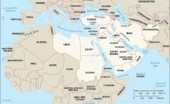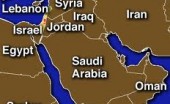Molly Minturn - My family is heartbroken to share that my father died in surgery on Monday, Feb. 10. It…
Postscript to #1373 – Kurdistan
Written by Diana Thebaud Nicholson // May 1, 2008 // Geopolitics, Middle East & Arab World, Oil & gas, U.S. // Comments Off on Postscript to #1373 – Kurdistan
PJAK told to stop cross border attacks on Iran
(Press TV – Iran) The semi-autonomous Kurdish government of Iraq has called on separatist Kurdish militants to cease cross border attacks on Iranian territories.
Reports indicate that Iranian artillery and fighter jets on Saturday launched attacks against the outlawed Party for Free Life in Kurdistan (PJAK). The attacks, which have had no reported casualties, are the first time Iran has used aircraft against Kurdish rebels.
August 8
Kurds claim responsibility for oil line blast
(FT) Kurdish separatists claimed responsibility on Thursday for an explosion that has halted the flow of oil through the Baku-Tbilisi-Ceyhan pipeline, helping to push up oil prices amid uncertainty over the security of the supply route.
July 11
Kurdistan diary
Mountains and waterfalls: An unconventional holiday in “The Other Iraq”
(The Economist) Much has improved for the Kurds since the days of Saddam Hussein. This is a moment of opportunity, and they are doing what they can to succeed. But even Kurds acknowledge that they face many challenges, such as corruption, non-existent political opposition and a whiff of nepotism. The future looks bright, but there is quite a way to go.
July 10
Turkish PM boosts ties with Iraq
Turkish Prime Minister Recep Tayyip Erdogan says he has support from Iraq’s government and Iraqi Kurdish leaders to fight the Kurdish rebel group, the PKK.
The Turkish prime minister spoke of a joint understanding between the two nations, as well regional Kurdish leaders in northern Iraq, to tackle the PKK – an issue which has previously strained relations.
He said: “The PKK is a terrorist organisation, which is not only Turkey’s enemy but Iraq’s as well.
July 3
Panel Questions State Dept. Role in Iraq Oil Deal
By JAMES GLANZ and RICHARD A. OPPEL Jr.
Bush administration officials knew that an oil company with close ties to President Bush planned to sign an oil deal with the Kurdistan government, counter to U.S. policy.
United States policy is to warn companies that they incur risks in signing contracts until Iraq passes an oil law and to strengthen Iraq’s central government. The Kurdistan deal, by ceding responsibility for writing contracts directly to a regional government, infuriated Iraqi officials. But State Department officials did nothing to discourage the deal and in some cases appeared to welcome it, the documents show.



